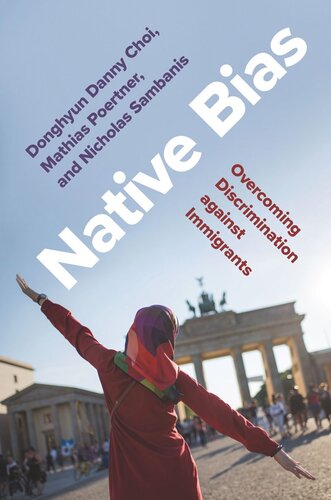

Most ebook files are in PDF format, so you can easily read them using various software such as Foxit Reader or directly on the Google Chrome browser.
Some ebook files are released by publishers in other formats such as .awz, .mobi, .epub, .fb2, etc. You may need to install specific software to read these formats on mobile/PC, such as Calibre.
Please read the tutorial at this link: https://ebookbell.com/faq
We offer FREE conversion to the popular formats you request; however, this may take some time. Therefore, right after payment, please email us, and we will try to provide the service as quickly as possible.
For some exceptional file formats or broken links (if any), please refrain from opening any disputes. Instead, email us first, and we will try to assist within a maximum of 6 hours.
EbookBell Team

5.0
20 reviewsWhat drives anti-immigrant bias—and how it can be mitigated
In the aftermath of the refugee crisis caused by conflicts in the Middle East and an increase in migration to Europe, European nations have witnessed a surge in discrimination targeted at immigrant minorities. To quell these conflicts, some governments have resorted to the adoption of coercive assimilation policies aimed at erasing differences between natives and immigrants. Are these policies the best method for reducing hostilities? Native Bias challenges the premise of such regulations by making the case for a civic integration model, based on shared social ideas defining the concept and practice of citizenship.
Drawing from original surveys, survey experiments, and novel field experiments, Donghyun Danny Choi, Mathias Poertner, and Nicholas Sambanis show that although prejudice against immigrants is often driven by differences in traits such as appearance and religious practice, the suppression of such differences does not constitute the only path to integration. Instead, the authors demonstrate that similarities in ideas and value systems can serve as the foundation for a common identity, based on a shared concept of citizenship, overcoming the perceived social distance between natives and immigrants.
Addressing one of the most pressing challenges of our time, Native Bias offers an original framework for understanding anti-immigrant discrimination and the processes through which it can be overcome.